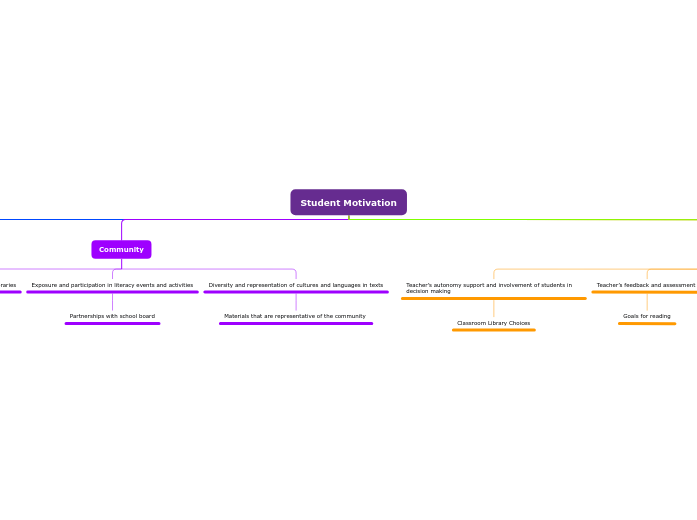Student Motivation
Family
Parents’ reading habits and attitudes
Reading with children
Having books in the home
Enjoyment!
Reading infront of children
Parents’ communication and interaction with children about reading
Enthusiasm for reading
Reading for enjoyment
Avoid rewards, focus on process of learning
Parents’ provision of time, space, and resources for reading
Connections with schoom/Involvement and knowing what is happening in the classroom
Space to do homework or read
Variety of print resources, not just electronic
Parents’ expectations and involvement in children’s reading
Community
Availability and accessibility of books and libraries
Inclusive spaces
Exposure and participation in literacy events and activities
Partnerships with school board
Diversity and representation of cultures and languages in texts
Materials that are representative of the community
Classroom Culture
Teacher’s autonomy support and involvement of students in decision making
Classroom Library Choices
Teacher’s feedback and assessment
Goals for reading
Teacher’s selection and presentation of texts and tasks
A representation of diversity and Culturally Responsive Teaching methods
Teacher’s modeling and enthusiasm for reading
Communication with families
Centered around Student Needs
School Culture
Policies and practices that promote student choice and voice
Curriculum standards
Goals for reading
Professional development and collaboration opportunities for teachers
TLLP or Collaborative Inquiry Projects
Leadership
Motivation for staff which translates into students
